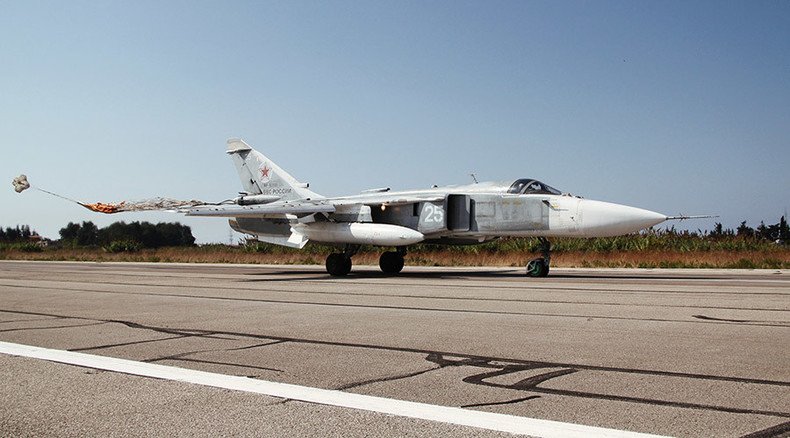Why Russia had to intervene in Syria

Combating international terrorism has long been one of the top priorities of Russia's foreign policy. We have been consistently advocating genuinely global efforts in countering this evil.
The fight against terrorism must be conducted on a universal legal basis, starting with the UN Charter. That is why Russia has been unable to join the US-led “global coalition” against Islamic State (IS, formerly ISIS/ISIL). The coalition was established in circumvention of the UN Security Council, and its operations in Syria violate the sovereignty of that country.
The fight against IS can gain legitimacy only through a UN Security Council mandate. So far the Security Council has been blocked by attempts of a group of states to impose an ideological approach to this direct common threat. The Russian draft resolution on combating terrorist groups in the Middle East, while respecting the independence of countries of the region, remains on the table.
Russia calls for establishing a broad counter-terrorist front. Addressing robustly the threat of IS and other terrorist groups in the region, requires a joint and coordinated action by all those who are already fighting ISIS on the ground. Those include the Syrian and Iraqi armies, the Kurdish and Shia militias, and groups of patriotic opposition in Syria. The recent meetings at the UN General Assembly have shown that nobody is enthused at the prospect of destruction of the regional architecture and replacement of secular states with an extremist “caliphate”.
While those diplomatic efforts are gaining momentum, Russia remains the only international player whose military actions in Syria has a legal basis in the form of the request of the government in Damascus. Our air strikes in Syria are solely focused on the elimination of the terrorist threat in that country. As regards the choice of targets, the Russian Defence Ministry has shown an unprecedented openness, providing comprehensive and detailed information on every single operation of the Russian Air Force, on a daily basis. Yet any information that our partners can share regarding potential IS targets to be hit, will be highly appreciated. So far our respective requests have not been responded to.
Putin:if you say Russia hits wrong targets in Syria,give us right ones.We’ll do the bombing.Our partners keep silent pic.twitter.com/imTkrKsZ4W
— Alexander Yakovenko (@Amb_Yakovenko) October 12, 2015Russia's actions are already bringing tangible results on the ground. Several hundred air strikes have significantly degraded the command and logistical infrastructure of IS. This is in stark contrast with the widely recognized and admitted inefficiency of the US-led coalition. After more than a year of bombing, IS ranks have swollen, their control over some regions has strengthened, and financial flows have been steady.
The accusation that IS is a product of Russia's “insistence” on keeping President Assad in power is absolutely untenable. What is true is that the weakening of the Syrian authorities caused by the outside interference has led to vacuum and vast zones of anarchy throughout the country, which were filled by terrorists. The so-called moderate opposition was led to believe that a Western military intervention would engineer a “regime change,” that somebody would fight for them. Consequently, as civil war raged, polarization left little room for those misled groups.
Indeed, while solving the problem of terrorism, we certainly must facilitate the launch of a UN-led focused and comprehensive political process based on the Geneva communiqué of 30 June 2012. Defeating terrorists will help create the right conditions for a lasting political settlement. It will be the best way to put an end to the civil conflict and achieve а “peace without victory”, something that the Entente powers couldn’t stomach in 1918.
LISTEN MORE:
The statements, views and opinions expressed in this column are solely those of the author and do not necessarily represent those of RT.












